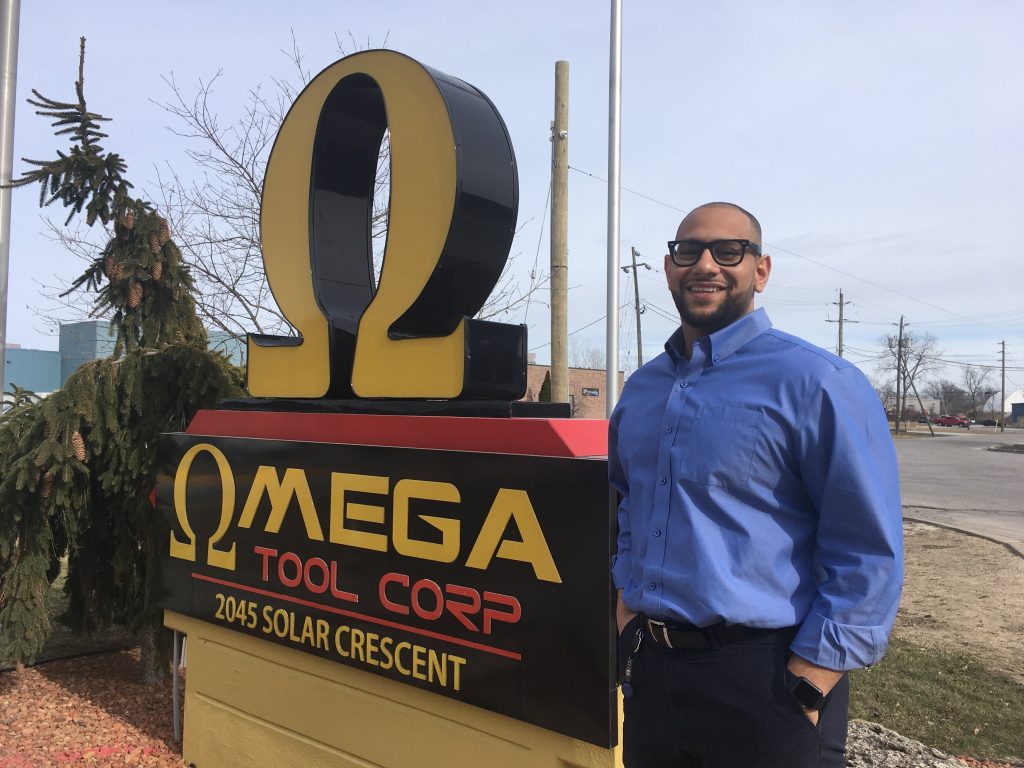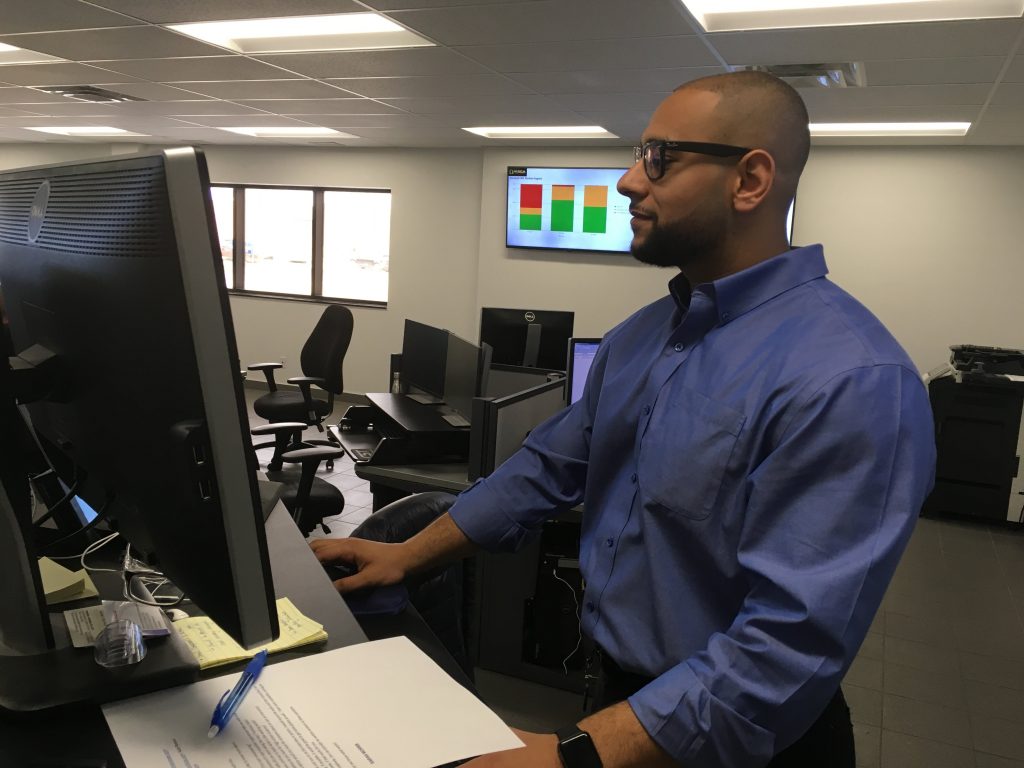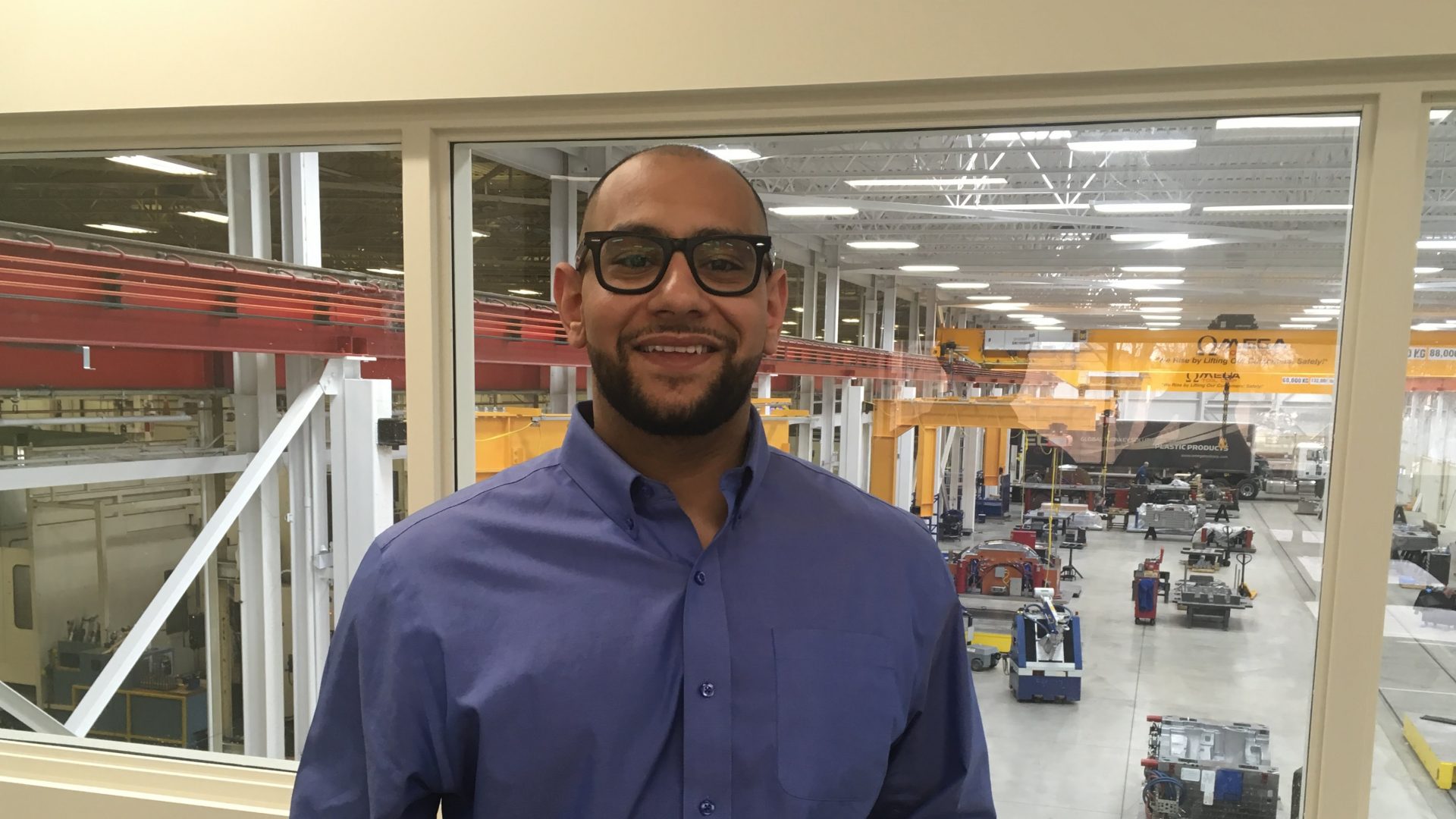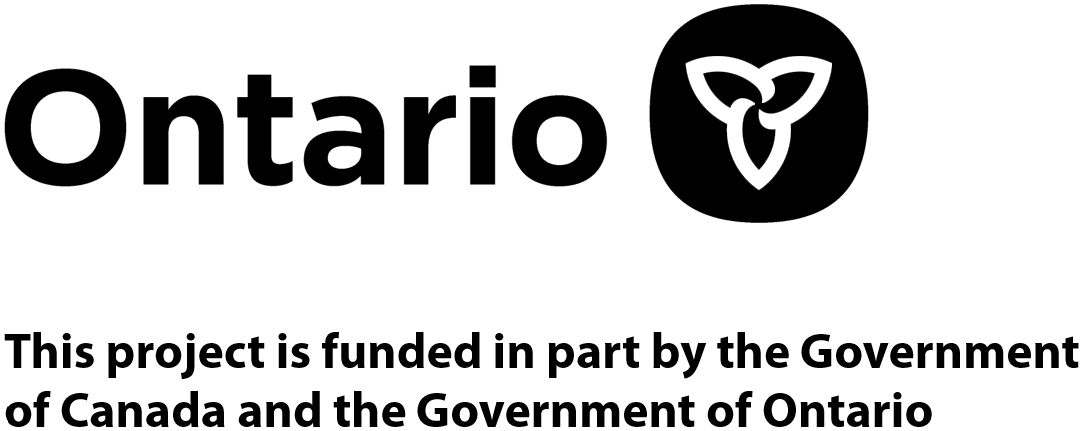Omega Tool Corporation is a global leader in the engineering and manufacturing of plastics tooling. Omega offers solutions for complex tooling challenges for many OEMs, Tier 1 and Tier 2 customers worldwide. At their 100,000 square-foot facility in Old Castle, their innovative thinking apparent throughout all levels of their staff.
Mina Girges is a Data Operation Analyst with Omega. Born and raised in Windsor, his career journey has been down many different paths before coming to tool and die. With original ambitions to become an architect, he moved into the business world with a focus on technology.
We spoke to Mina about his life-long love of learning and how this has helped him succeed in the role of Data Operation Analyst at Omega.
What is an average day like for you?
Day to day is pretty standard. I’ll come in around 7:45 AM, set up, go through all my emails. Most of my role is producing different reports. I’ll get requests to produce those reports, whether that’s a break-even analysis or a process improvement, like how we measure or track something. My responsibility for the rest of the day is to figure them out or to pick up projects.

Has your role at Omega changed since you began?
When I first started here, a lot of the reports I did were done as manual entry. My previous role in Toronto, I learned a lot about computer programming and Excel, ABA, etc. When I started in this role, I eliminated all the data entry. That took me a few weeks. I started automating all the reports.
Monday would come; I would sit there in the morning, click a button, and everything would be pushed out in an email. I wasn’t busy so I asked for more work. My role started to expand from a data operations role to more of a project manager because I had more capacity. They started giving me more responsibilities and I was soon in charge of making our manufacturing paperless and scheduling. My role became more multifaceted.
The management and executive team really challenge me on a day-to-day basis to learn, ask questions, and step outside my comfort zone.
When I come into work now, I have no idea how it’s going to look because I could have a plan but it changes very quickly. You need that kind of flexibility with the way you work here.
Did you imagine yourself in manufacturing?
In high school, I wanted to be an architect. I came from a family of engineers. It was around grade 11 where I realized that I had no idea what I really wanted to do. I had a conversation with my father and told him that I didn’t want to be an engineer and didn’t yet know. I looked at some of the different social science programs and that wasn’t for me either. In grade 12, I finally applied for business. In hindsight, I probably would have preferred to become a computer programmer.
I left University with a data-heavy concentration and started working in a lot of capacities. My first job was at Workforce WindsorEssex as a junior project manager. Once I left that world and started working in the private industry, I realized that I had to address the skills gap in my career. I wanted to be more technical in terms of my administrative skills and industry knowledge. I tried to figure out what that was.

How did you address your own skill gap?
I worked in a few different industries like retail, food manufacturing; all within a management science capacity. I lived in Toronto for about a year and that’s where I really took on learning outside of school. I took French classes and finished up to the advanced level.
Going to a big city helped me realize that you have to keep on top of your game. You’re like an athlete; you are always trying to find that competitive edge and help you and your organization. You see that in Toronto a lot. There is a big city vibe to try new things.
I got onto Code Academy and spent my evenings in Toronto learning how to code. The first language I picked up was CQUIL. Working in supply chain roles or business related roles, you have these large ERP systems that pretty much all run on a relational database and that seemed like the natural language to learn. I thought, “wow, this has a lot of applications.” I started talking to a lot of other tech friends and asked them what the most valuable programming language to learn and so I learned Python.
How are you continuing to learn at Omega?
I try to sit down and ask myself, “what are the skillsets of tomorrow and where do I lack?”
One of the most important things in that is to have a good manager. They will put you in good positions to learn. I told my manager, “you want me to be more involved in the manufacturing process and want me to help modernize how we do things, but I need to understand the technical process.” So the first thing he did was put me on the shop floor for a couple of weeks just to learn.
That gave me so much opportunity to connect with the team and know who to go for to ask questions. It’s really important to have a strong manager who recognizes that your learning doesn’t stop but is constantly changing. In this industry where you are always seeking a competitive edge, you need that kind of mentality. I can go to him with a course that will be useful to Omega and myself. He’s my biggest advocate in getting that access to resources.
What advice would you give to high school students?
It’s ok that you don’t know. Up until a few years ago, I was still pretty lost and unsure of where I wanted to go. Be willing to try everything. If there is something you like about an industry, go take an internship. I’ve interned in a lot of different places. You want to make sure you can cross off all those opportunities.
Get involved in technology because it’s changing everything and you aren’t left behind in that skillset. Especially for a city like Windsor, you want to make sure you are comfortable with technology. If you are interested in tool and die, learn CAD or CAN, be comfortable with mechanics and don’t be afraid of getting your hands dirty.
Try to find an industry that reflects who you are. Take time to figure out who you are and your negotiables and non-negotiables. You will be happy no matter what.
How did you find that the tool and die industry was for you?
I failed at a lot of things. I had a lot of different internships and opportunities. I learned a lot about what I liked and didn’t like about each industry. I realized that I’m most suited for manufacturing. The way I think, how we approach problems at Omega are very structured and organized. I felt like that complimented more of my personality.
At Omega, there are a lot of new challenges and they’re always looking for a competitive edge. That has continued to attract me. That’s why I do so well at Omega. We are constantly looking for ways to evolve, be better, and improve. Like Steve Jobs said, “stay hungry.” That’s a very good example for my industry.

